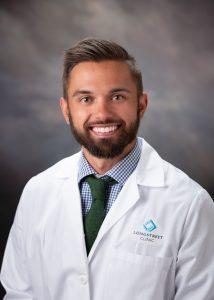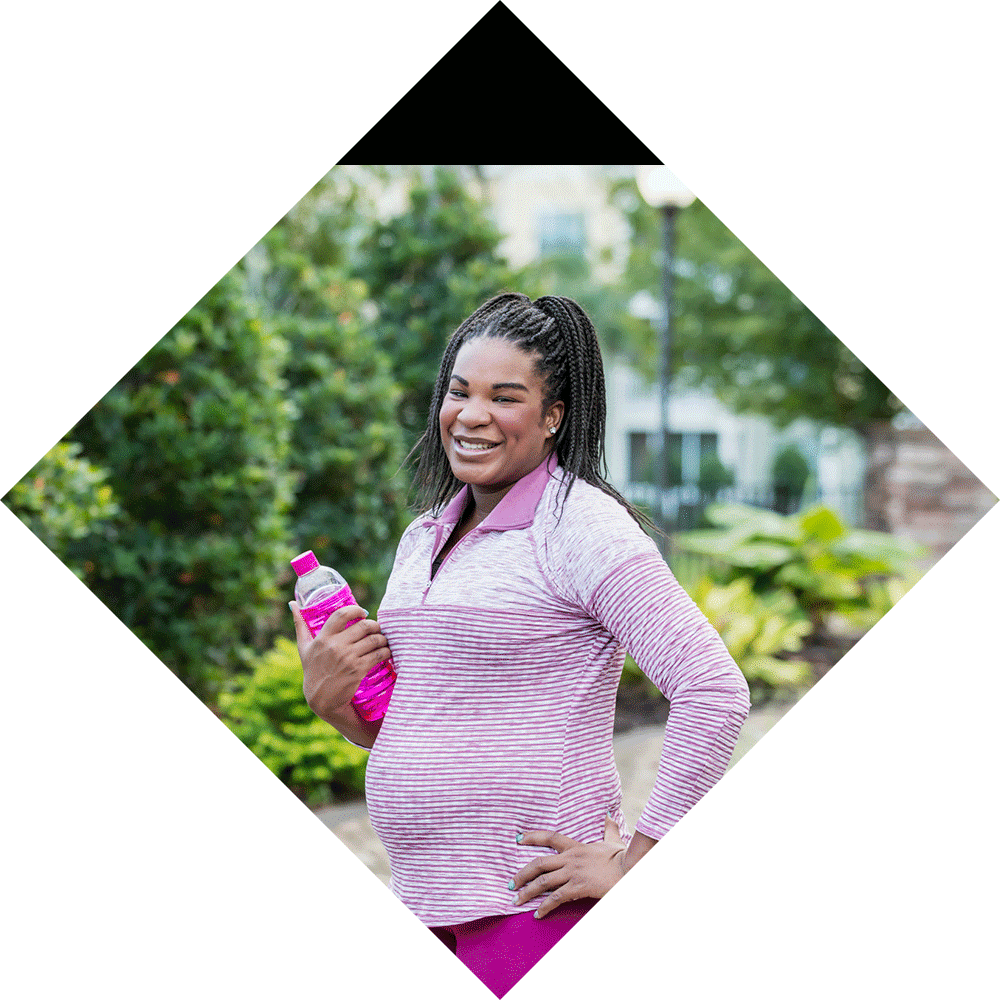As an expectant or new mother, you understand that you’re going to deal with a lot of changes to your body. But being pregnant and giving birth does not mean that you can’t keep up a healthy and active lifestyle. In fact, doctors and healthcare providers encourage expectant and new mothers of all shapes and sizes to maintain some form of exercise throughout their entire pregnancy and as soon as possible after birth.
Does that mean you can play contact sports or that you should go out and run marathons? No way! Does it mean that you should be careful and listen to your body? Absolutely. But it also means that – in almost all cases of pregnancy and birth – that it’s OK to get your sweat on and push yourself a little. It’s even healthier for you and your baby.
The trick lies in knowing just how far to push it so that you get both satisfaction and health benefits without stressing your body too much and ending up in pain – especially in your back, which may suffer some stress under the conditions of pregnancy.
With that in mind, Longstreet Clinic Neuroscience & Orthopedic Center sports medicine specialist Ian C. Quinn, D.O., wants to share some of the advice he’s provided to some of the more active expectant and new mothers he’s guided through the years – information that will keep you active, without stressing your body or putting you in pain.
Here are Dr. Quinn’s five things to consider when exercising during pregnancy – as well as for those getting back into exercise after giving birth.
5 things to consider when exercising during pregnancy
Get at least 20-30 minutes of moderate intensity exercise a day
The typical guidance is to try to maintain your current level of activity during pregnancy. But those on either extreme (intense exercisers and the very sedentary) may need to modify. Those who are involved in more extreme activities or amounts of activities may need to stop activities that could risk harm to the baby – such as contact sports and high impact training.
However, most expectant mothers can maintain their current level of activity as before pregnancy. And, in fact, the recommendation is that you get at least 20 to 30 minutes of moderate exercise most – if not all – days of the week. Swimming, stationary cycling, yoga and low impact aerobics like walking should be encouraged.
While activity restriction may be recommended for some mothers based on their unique pregnancy, there is no credible evidence to prescribe activity restriction for a healthy pregnancy. In fact, patients who are too sedentary may have increased risks of certain conditions including DVT (deep vein thrombosis, or blood clots in the extremities), excessive weight gain, bone demineralization and deconditioning.
Exercise provides some relief from pregnancy pains
As pregnancy progresses, often so do the aches and pains. But remaining active will keep your body strong and reduce some of the common aches and pains you might otherwise experience. As your center of gravity moves forward, low back pain is common, so stretching and yoga can be very helpful.
If an activity causes pain, be sure to talk about it with your doctor. In the meantime, it may be beneficial to change your activities to something less impactful, weight bearing and straining on the lower back. For example, a pregnant patient who experiences pain with jogging or walking may try switching to yoga, riding a stationary or recumbent bike, or using a pool.
If you can’t resolve pain with exercise, talk with your doctor about other strategies – including a dedicated home exercise program, manipulations or other recommendations.
Start low and go slow
For new and expectant mothers who were not previously active but are now looking to pick up an exercise regimen, start with strength and aerobic training. This should help with personal and baby health throughout pregnancy, delivery and postpartum. But start very light and easy and gradually increase your intensity and duration, so that you do not overly stress your body.
As previously mentioned, swimming, stationary cycling, yoga and low impact aerobics like walking are all great places to start.
When to be concerned
Any time exercise causes pain during your pregnancy, you should discuss this with your doctor. Be aware of any pains during pregnancy and discuss them with your doctor. Specifically be on the lookout for:
- New pain
- Progressive pain
- Low back pain that does not go away or comes in regular intervals
- Pain associated with new symptoms, including vaginal discharge, abdominal pain, lower abdominal cramping, urinary symptoms, leg swelling, rashes, fever or other concerning symptoms
Postpartum exercise is important
It is common for exercise to decrease in the postpartum period because of recovery and having a new baby to care for. However, know that this decrease in activity can lead to weight gain and overall loss of a healthy lifestyle. That’s why it’s important to try to maintain healthy habits, including some form of exercise, in the postpartum period to prioritize your physical and mental health.
Carve out time dedicated to exercise in your schedule. In the immediate postpartum period, it may be something slower paced like meditation, yoga or walking. Even starting with pelvic floor and abdominal strengthening exercises have benefits and can be initiated as directed by your OBGYN and anesthesiologist in the immediate postpartum period. You can then progress to more intensive activities – but building the habit early is important.
Recovery times vary for many reasons, including the type of delivery. But the time it takes to return to full baseline activity is less important, health-wise, than the overall benefits of exercise in general.
PLEASE NOTE: Concerns about exercises and milk production have been unsubstantiated, but mothers may choose to breastfeed just before exercise to reduce discomfort from exercise with engorged breasts. Understand that adequate nutrition and hydration are also important, especially in women partaking in higher exertion forms of exercise.
A valued member of Longstreet Clinic’s leading-edge Neuroscience & Orthopedic Center, Dr. Quinn is a board-certified family physician and fellowship-trained sports medicine specialist who sees patients in Gainesville and Braselton.

